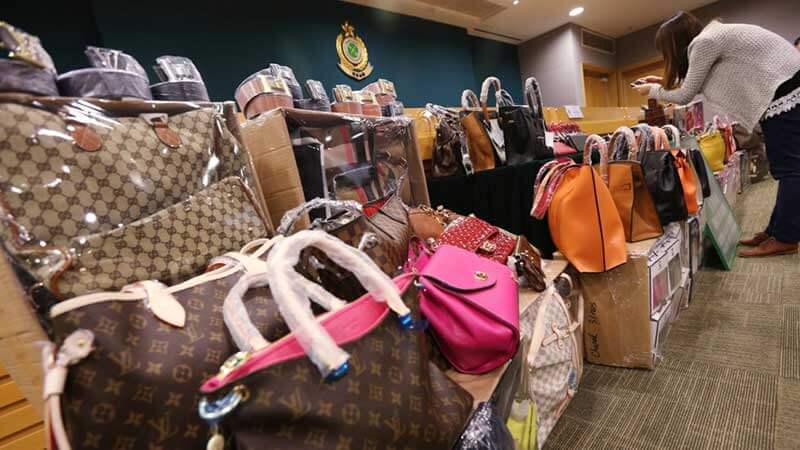- Transparency, transparency, transparency
- Blockchain is helping people make promises they can feel good about
- Counterfeit luxury items are a headache for major retailers
- Before you buy, check that QR code: blockchain can secure food, too!
Customer expectations are changing, and a few things are becoming clear about their demands. First, trust is key. Globally, an astounding 71 per cent of mobile commerce shoppers will only download an app from a trusted brand, and numbers are even higher in markets like the UK. And when it comes to accepting a luxury sticker or organic label at face value, fewer and fewer customers are willing to trust without proof. Second, transparency is critical. Whether we’re talking about ethics-minded consumers who want bloodless diamonds or cruelty-free meat, they want to buy products with a clear conscience – and they also want to know that they’re not being cheated.
For retailers, these shifts mean big changes – and blockchain really is at the heart of the brave new model for supply chain management. But don’t fall for the mistaken impression that this is just hype. Blockchain is the revolution retail’s been waiting for, strengthening consumer confidence by providing transparency and trust.
Transparency, transparency, transparency
Blockchain’s a simple idea. It’s a distributed ledger that uses thousands and thousands of privately owned computers to run its software, recording transactions in time-stamped, cryptographically secured ‘blocks’ that form an unhackable ‘chain’.
Here’s a metaphor for how it works. Imagine that you’re a farmer and I’m a warehouse that sells to Tesco. If we stood on a stage with a huge audience, and you handed me an apple, and I handed it to Tesco, everyone could witness that exchange. Even if a few people lied about it, it’d be really easy to verify. Blockchain is just a digital record that works with much the same system at its heart. It’s a vast, dispersed network that records, secures, and makes transactions visible.

In an era in which consumers don’t trust advertising or corporate statements, labelling fruit as ‘organic’, diamonds as ‘bloodless’, meat as ‘cruelty-free’, or a handbag as ‘genuine’ just doesn’t mean anything. No one cares about what you say – they want proof. For retail, a secure, transparent ledger is precisely the evidence a thriving business wants to offer its customers, verifying that a product is what it claims to be.
Blockchain is helping people make promises they can feel good about
As Barbara Lewis and Arathy S. Nair report for Reuters, De Beers, the world’s leader in diamond production, depends on trust to earn new customers and keep established ones. A diamond may be forever, as the South African company’s famous slogan promises, but fears that these stones are sourced from conflict-torn states in Africa are pretty persistent, too. To combat this crisis in confidence, they write that De Beers “has led industry efforts to verify the authenticity of diamonds and ensure they are not from conflict zones where gems could be used to finance violence”.
But as any savvy retailer can tell you, merely telling a customer what they want to hear is meaningless. Increasingly, it’s important to provide proof, to offer evidence, and to show as well as tell. To complement its existing tools, De Beers is introducing blockchain to track each individual stone, providing immutable, transparent proof of origin. With this new system in place, anyone – from customers to retailers – will be able to verify that each diamond is what it claims to be.
Counterfeit luxury items are a headache for major retailers
In Europe, trade in counterfeit goods is rampant. Europol, in partnership with the European Union Intellectual Property office, reports that counterfeiting and intellectual property theft are worth billions every year. Italy, Spain, and the UK are major targets, but everyone is affected. And for every consumer who wants a cheap knock-off, there’s another one who’s infuriated by paying good money for a fake item. Luxury retailers like Chanel, Louis Vuitton, and Nike would love to put an end to this illegal trade, but much as in the high-stakes world of diamonds, promises are worthless.

Instead, the luxury retail industry is looking to blockchain. As Kati Chitrakorn explains for The Business of Fashion, “microchips utilising blockchain can tell a customer with complete certainty whether a piece of clothing is genuine or an imitation; whether it was stolen, where it was made and the product’s general history. All this information could be accessible via a smartphone, and could help prevent counterfeiting and theft.” As this tech becomes more broadly adopted – and that’s a certainty, not a possibility – it will become increasingly difficult to counterfeit luxury goods.
Before you buy, check that QR code: blockchain can secure food, too!
If you’ve ever bought organic produce or free range chicken and wondered what you were really getting for your money, you’re not alone. With traditional supply chain management, it’s impossible for retailers to guarantee that products are what they claim to be. In fact, even they may not know what they’re selling! And whether a simple mistake was made in labelling or intentional fraud was being practiced, consumers (and retailers) have no way of knowing if they’re being cheated.
But here, too, blockchain offers a clear solution. When American retail giant Walmart tested its traditional supply chain, Sylvain Charlebois writes for The Conversation, tracking a single mango back to its point of origin took six days, 18 hours, and 26 minutes. But once it embraced a blockchain-driven system, that same tracking was completed in just 2.2 seconds! For consumers, this means that they can now scan a QR code on the mango’s label, and know instantly where it came from, how it was farmed, and whether it really is what’s advertised. That’s an assurance retailers can’t afford to do without, and you’ll soon see these codes on everything from lamb to pineapples.
While it’s easy to see the buzz around blockchain as nothing more than hype, for retail, that’s simply not true. In an era where trust must be earned and facts must be verified, a digital ledger that guarantees transparency and security is a go-to tool for retail and a defining addition to the industry’s digital revolution.
Share via:


